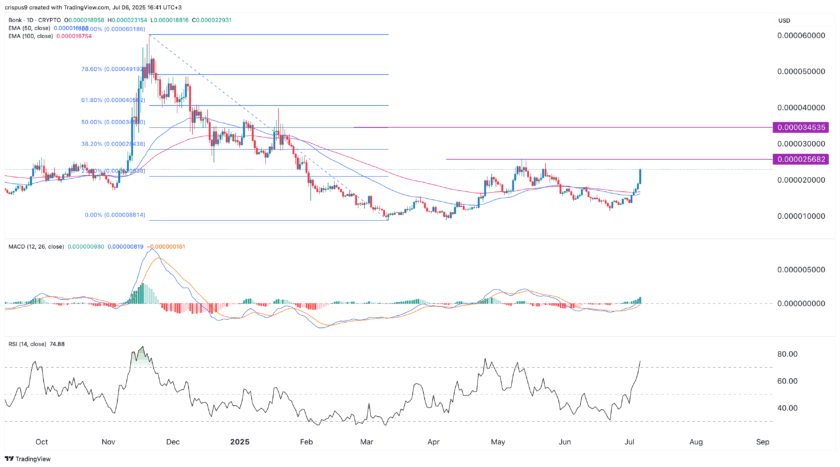During the last few days, a number of cryptocurrency supporters have been discussing Paul Sztorc’s Drivechain project, also referred to as “Drivenet.” The Drivechain project has been a work in progress for years now, and just recently Sztorc published a new version of the Drivenet software. On June 29, the Bitcoin proponent John Light tweeted “Running Drivenet” on Twitter, letting the public know about the application’s “important benefits.”
During the last five years scaling concepts, offchain networks like Lightning, and sidechains have been both hot and controversial topics. This week, a number of bitcoiners have been discussing Paul Sztorc’s Drivechain and the platform Drivenet.
The Bitcoin supporter, John Light, tweeted about Drivenet on Wednesday. Similarly to Hal Finney’s 2009 tweet that said: “Running Bitcoin,” Light tweeted:
Running drivenet
— John Light (@lightcoin) June 29, 2020
Light detailed how he synced the platform and obtained testnet tokens from a faucet. He then sent some coins to a sidechain and after syncing up his sidechain node, the deposit confirmed. Following the confirmed deposit, Light decided to send some coins to a second sidechain, which also confirmed. “This is where the magic happens: withdrawing funds from the sidechain back to the mainchain,” Light wrote.
“My withdrawal [transaction] has been included in a bundle of sidechain [transactions] waiting to get transferred to the specified addresses on the mainchain. If mainchain miners ‘upvote’ this bundle in 140 of the next 300 blocks, the transfer will complete. Currently at 27/140 upvotes required. Mainchain status: Spent. [The] Sidechain withdrawal went through. Thank you testnet miners for not censoring or stealing my coins,” Light tweeted. The Bitcoin proponent further tweeted:
To recap: I sent some testnet coins from a modified bitcoin testnet to a Drivechain-based sidechain. I sent some sidecoins to myself. I withdrew the sidecoins back to my mainchain address for a full round trip. This is very exciting to me. When Drivechain mainnet?
Drivechain has been a popular project for quite some time, and many developers have been working in stealth mode messing around with the Drivenet software. The developers have a lively Telegram chat channel, where Sztorc and many others test and discuss the Drivechain project. Sztorc released a new version of Drivenet on June 23, 2020.
“A new version Drivenet. (Mainchain v33, Sidechain v06) has been released,” Sztorc tweeted. “Sidechain mining now just involves clicking a button, there’s also a really nice “Withdrawal Explorer” GUI now, [and] tons of UX and sidechain withdrawal-logic improvements.”
People who are interested in Drivechain can read about the project’s specifications and accompanying literature at the project’s web portal drivechain.info. After John Light told his 8,900 Twitter followers that he was running Drivenet, an individual asked Light “What sorts of use cases and benefits do you foresee for Drivechain as opposed to Lightning?” Light responded and said that’s a “good question.”
“[In my opinion] Drivechains have three important benefits vs [Lightning Network]: No hot wallet requirement, no channel limitations, and not constrained in functionality by mainchain consensus rules. One use case I am excited to see is a zcash-like fully encrypted sidechain using Drivechain,” Light said.
During the last few months, bitcoiners have noticed that Ethereum has dominated as Bitcoin’s (BTC) main sidechain. Despite trust model debates, there is no denying Ethereum’s current role and the number of synthetic bitcoins being transferred and stored within the chain.
Additionally, the federated sidechain deployed by Blockstream has been a controversial topic in recent days too. The reason for the contention about Bloskstream’s Liquid sidechain, is because the founder of the Summa project, James Prestwich, explained on Twitter that the emergency 2-of-3 controlled 870 bitcoin “violates Liquid’s security model.”
What do you think about the Drivechain project? Let us know what you think about this subject in the comments section below.
Image Credits: Shutterstock, Pixabay, Wiki Commons, Twitter
Disclaimer: This article is for informational purposes only. It is not a direct offer or solicitation of an offer to buy or sell, or a recommendation or endorsement of any products, services, or companies. Bitcoin.com does not provide investment, tax, legal, or accounting advice. Neither the company nor the author is responsible, directly or indirectly, for any damage or loss caused or alleged to be caused by or in connection with the use of or reliance on any content, goods or services mentioned in this article.
Read disclaimer







